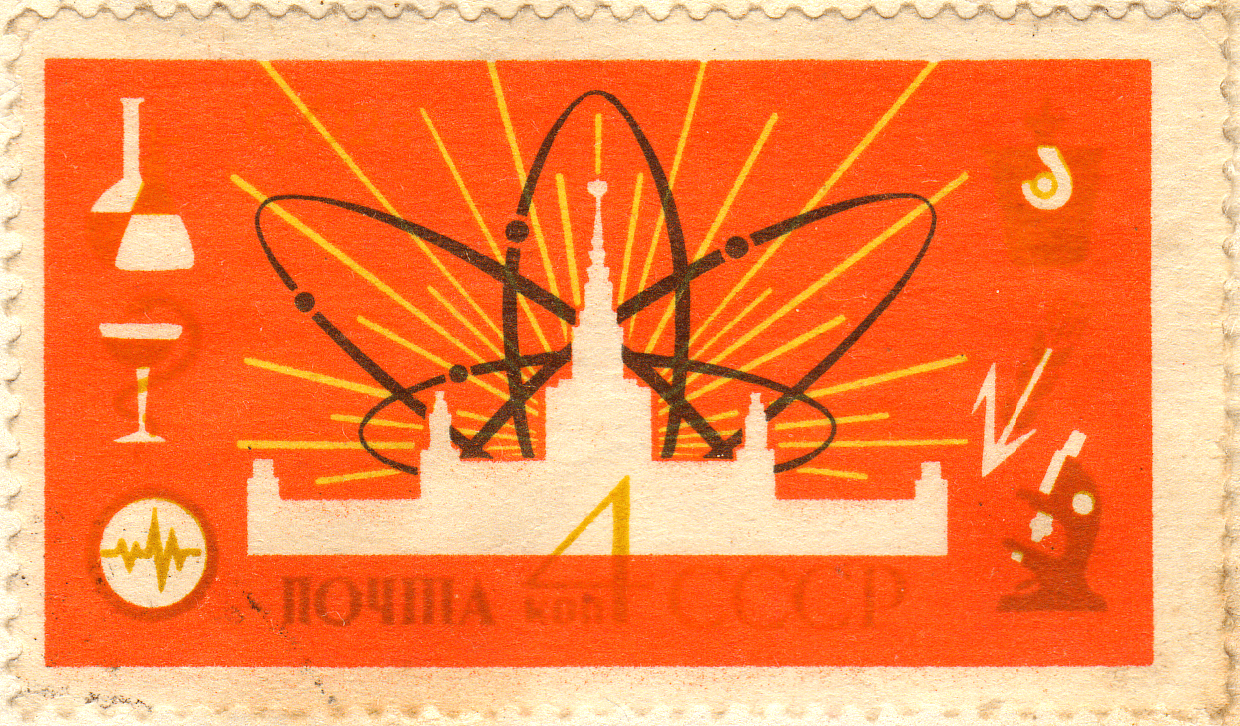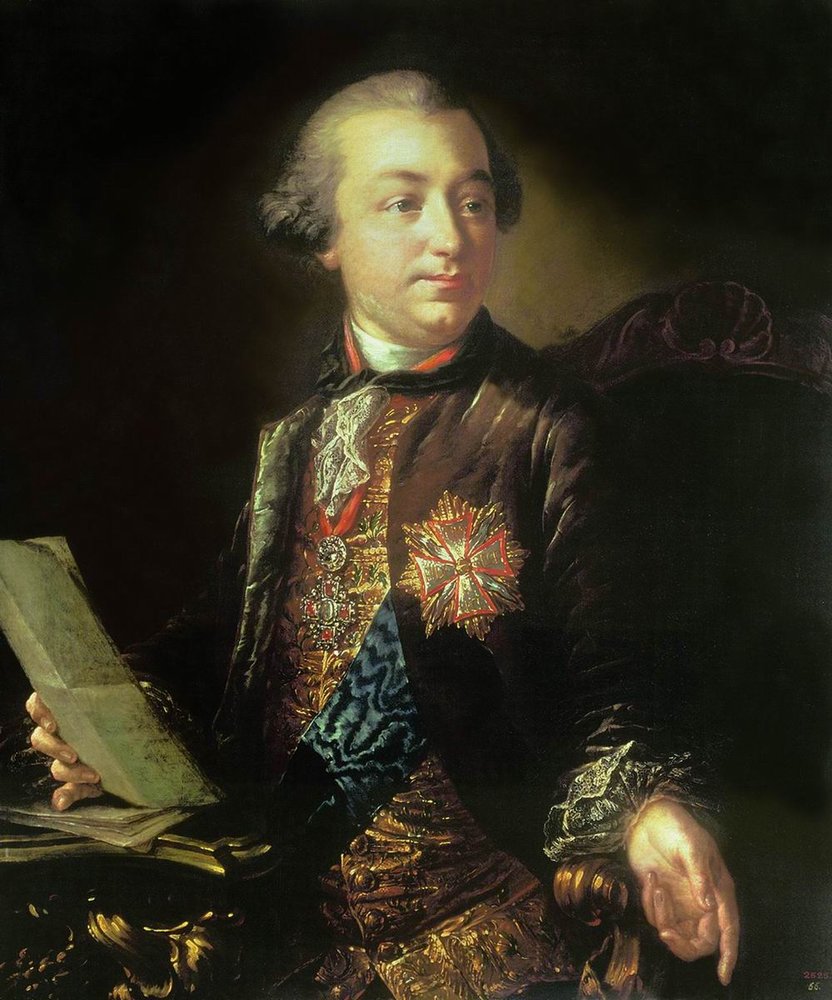|
Russian Enlightenment
The Russian Age of Enlightenment was a period in the 18th century in which the government began to actively encourage the proliferation of arts and sciences, which had a profound impact on Russian culture. During this time, the first Russian university was founded, a library, a theatre, a public museum, as well as a relatively independent press. Like other enlightened despots, Catherine the Great played a key role in fostering the arts, sciences, and education. The national Enlightenment in the Russian Empire differed from its Western European counterpart in that it promoted further modernization of all aspects of Russian life and was concerned with abolishing the institution of serfdom in Russia. The Russian Enlightenment did not promote the separation of church and state. Pugachev's Rebellion and the French Revolution may have shattered the illusions of rapid political change, but the intellectual climate in Russia was altered irrevocably. Russia's place in the world was deba ... [...More Info...] [...Related Items...] OR: [Wikipedia] [Google] [Baidu] [Amazon] |
Mikeshin Catherine
Mikhail Osipovich Mikeshin (; 9 February 1835 – 19 January 1896) was a Russian artist who regularly worked for the Romanov family and designed a number of outdoor statues in the major cities of the Russian Empire. Biography Mikeshin was born on 21 February 1835 in a village near Roslavl. When he attended the Imperial Academy of Arts in 1852–58, his Romantic treatment of patriotic themes won him the admiration of the Russian royalty and he was asked to teach drawing to the Grand Duchesses. Although his forte was battle painting, Mikeshin's sketch won the much-publicized contest for the monument to the Millennium of Russia in 1859. Henceforward, commissions were plentiful. He illustrated the official motto Orthodoxy, Autocracy, and Nationality in designs for bombastic outdoor statues of Kuzma Minin in Nizhny Novgorod, Admiral Greig in Nikolayev, and Alexander II of Russia in Rostov-on-Don. Only a few of Mikeshin's outdoor monuments survived the Soviet years. These include ... [...More Info...] [...Related Items...] OR: [Wikipedia] [Google] [Baidu] [Amazon] |
Antiokh Kantemir
Antiochus or Antioch Kantemir or Cantemir (; ; ; ; 8 September 1708 – 31 March 1744) was a Moldavian who served as a man of letters, diplomat, and prince during the Russian Enlightenment. He has been called "the father of Russian poetry". Life Kantemir was born into a noble Moldavian family at Iași on 8 September 1708. His illiterate grandfather Constantin had been made voivode of Moldavia by the Ottomans in 1685 and was succeeded by his well-educated sons Antioch and Demetrius. Kantemir was the son of Demetrius by his wife, Princess Kassandra Cantacuzene, who claimed descent from the Byzantine dynasty of the same name. He spent much of his youth in Constantinople as a hostage to the Turks. He was then educated by his father and at the St Petersburg Academy before moving to the family estate near Dmitrovsk. He served as the Russian ambassador at London from 1731 to 1736, when he was relocated to Paris to serve as Russia's minister plenipotentiary to the Kingd ... [...More Info...] [...Related Items...] OR: [Wikipedia] [Google] [Baidu] [Amazon] |
Philosophes
The were the intellectuals of the 18th-century European Enlightenment.Kishlansky, Mark, ''et al.'' ''A Brief History of Western Civilization: The Unfinished Legacy, volume II: Since 1555.'' (5th ed. 2007). Few were primarily philosophers; rather, ''philosophes'' were public intellectuals who applied reason to the study of many areas of learning, including philosophy, history, science, politics, economics, and social issues. They had a critical eye and looked for weaknesses and failures that needed improvement. They promoted a "Republic of Letters" that crossed national boundaries and allowed intellectuals to freely exchange books and ideas. Most ''philosophes'' were men, but some were women. They strongly endorsed progress and tolerance, as they distrusted organized religion (most were deists) and feudal institutions. Many contributed to Diderot's ''Encyclopédie''. They faded away after the French Revolution reached a violent stage in 1793. Characterization ''Philosophe ... [...More Info...] [...Related Items...] OR: [Wikipedia] [Google] [Baidu] [Amazon] |
Enlightened Despot
Enlightened absolutism, also called enlightened despotism, refers to the conduct and policies of European absolute monarchs during the 18th and early 19th centuries who were influenced by the ideas of the Enlightenment, espousing them to enhance their power. The concept originated during the Enlightenment period in the 18th and into the early 19th centuries. An enlightened absolutist is a non- democratic or authoritarian leader who exercises their political power based upon the principles of the Enlightenment. Enlightened monarchs distinguished themselves from ordinary rulers by claiming to rule for their subjects' well-being. John Stuart Mill stated that despotism is a legitimate mode of government in dealing with barbarians, provided the end be their improvement. Enlightened absolutists' beliefs about royal power were typically similar to those of regular despots, both recognizing that they were destined to rule. Enlightened rulers may have played a part in the abolition of se ... [...More Info...] [...Related Items...] OR: [Wikipedia] [Google] [Baidu] [Amazon] |
Mikhail Lomonosov
Mikhail Vasilyevich Lomonosov (; , ; – ) was a Russian polymath, scientist and writer, who made important contributions to literature, education, and science. Among his discoveries were the atmosphere of Venus and the law of conservation of mass in chemical reactions. His spheres of science were natural science, chemistry, physics, mineralogy, history, art, philology, optical devices and others. The founder of modern geology,Vernadsky, V. (1911) Pamyati M.V. Lomonosova. Zaprosy zhizni, 5: 257-262 (in Russian) n memory of M.V. Lomonosov/ref> Lomonosov was also a poet and influenced the formation of the modern Russian literary language. Early life and family Lomonosov was born in the village of Mishaninskaya, later renamed Lomonosovo in his honor, in Archangelgorod Governorate, on an island not far from Kholmogory, in the far north of Russia. His father, Vasily Dorofeyevich Lomonosov, was a prosperous peasant fisherman turned ship owner, who amassed a small fortune trans ... [...More Info...] [...Related Items...] OR: [Wikipedia] [Google] [Baidu] [Amazon] |
Polymath
A polymath or polyhistor is an individual whose knowledge spans many different subjects, known to draw on complex bodies of knowledge to solve specific problems. Polymaths often prefer a specific context in which to explain their knowledge, but some are gifted at explaining abstractly and creatively. Embodying a basic tenet of Renaissance humanism that humans are limitless in their capacity for development, the concept led to the notion that people should embrace all knowledge and develop their capacities as fully as possible. This is expressed in the term Renaissance man, often applied to the Intellectual giftedness, gifted people of that age who sought to develop their abilities in all areas of accomplishment: intellectual, artistic, social, physical, and spiritual. Etymology The word polymath derives from the Ancient Greek, Greek roots ''poly-'', which means "much" or "many," and ''manthanein'', which means "to learn." Plutarch wrote that the Ancient Greek Muses, muse P ... [...More Info...] [...Related Items...] OR: [Wikipedia] [Google] [Baidu] [Amazon] |
Russian Academy Of Sciences
The Russian Academy of Sciences (RAS; ''Rossíyskaya akadémiya naúk'') consists of the national academy of Russia; a network of scientific research institutes from across the Russian Federation; and additional scientific and social units such as libraries, publishing units, and hospitals. Peter the Great established the academy (then the St. Petersburg Academy of Sciences) in 1724 with guidance from Gottfried Wilhelm Leibniz, Gottfried Leibniz. From its establishment, the academy benefitted from a slate of foreign scholars as professors; the academy then gained its first clear set of goals from the 1747 Charter. The academy functioned as a university and research center throughout the mid-18th century until the university was dissolved, leaving research as the main pillar of the institution. The rest of the 18th century continuing on through the 19th century consisted of many published academic works from Academy scholars and a few Academy name changes, ending as The Imperial ... [...More Info...] [...Related Items...] OR: [Wikipedia] [Google] [Baidu] [Amazon] |
Imperial Academy Of Arts
The Imperial Academy of Arts, informally known as the Saint Petersburg Academy of Arts, was an art academy in Saint Petersburg, founded in 1757 by Ivan Shuvalov, the founder of the Imperial Moscow University, under the name ''Academy of the Three Noblest Arts''. Catherine the Great renamed it the Imperial Academy of Arts and commissioned a new building, completed 25 years later in 1789 by the Neva River. The academy promoted the neoclassical style and technique, and sent its promising students to European capitals for further study. Training at the academy was virtually required for artists to make successful careers. Formally abolished in 1918 after the Russian Revolution, the academy was renamed several times. It established free tuition; students from across the country competed fiercely for its few places annually. In 1947 the national institution was moved to Moscow, and much of its art collection was moved to the Hermitage. The building in Leningrad was devoted to th ... [...More Info...] [...Related Items...] OR: [Wikipedia] [Google] [Baidu] [Amazon] |
Moscow University
Moscow State University (MSU), officially M. V. Lomonosov Moscow State University,. is a public research university in Moscow, Russia. The university includes 15 research institutes, 43 faculties, more than 300 departments, and six branches. Alumni of the university include past leaders of the Soviet Union and other governments. As of 2019, 13 Nobel laureates, six Fields Medal winners, and one Turing Award winner were affiliated with the university. History Imperial Moscow University Ivan Shuvalov and Mikhail Lomonosov promoted the idea of a university in Moscow, and Russian Empress Elizabeth decreed its establishment on . The first lectures were given on . Saint Petersburg State University and MSU each claim to be Russia's oldest university. Though Moscow State University was founded in 1755, St. Petersburg which has had a continuous existence as a "university" since 1819 sees itself as the successor of an academy established on in 1724, by a decree of Peter the Great ... [...More Info...] [...Related Items...] OR: [Wikipedia] [Google] [Baidu] [Amazon] |
Courtier
A courtier () is a person who attends the royal court of a monarch or other royalty. The earliest historical examples of courtiers were part of the retinues of rulers. Historically the court was the centre of government as well as the official residence of the monarch, and the social and political life were often completely mixed together. Background Monarchs very often expected the more important nobles to spend much of the year in attendance on them at court. Not all courtiers were noble, as they included clergy, soldiers, clerks, secretaries, agents and middlemen with business at court. All those who held a court appointment could be called courtiers but not all courtiers held positions at court. Those personal favourites without business around the monarch, sometimes called the camarilla, were also considered courtiers. As social divisions became more rigid, a divide, barely present in Antiquity or the Middle Ages, opened between menial servants and other classes at c ... [...More Info...] [...Related Items...] OR: [Wikipedia] [Google] [Baidu] [Amazon] |
Ivan Shuvalov
Ivan Ivanovich Shuvalov (; 1 November 172726 November 1797) was called the ''Maecenas'' (patron) of the Russian Enlightenment, the first Russian Minister of Education and Active Privy Councillor (1773). Russia's first theatre, university, and academy of arts were instituted with his active participation. A favorite of Elizaveta Petrovna of Russia; friend of the scientist M.V. Lomonosov. Love affair with the Empress He was born in Moscow, the only son of Ivan Menshoi Shuvalov, an army captain who died when the boy was ten, and Tatiana Rodionovna. The Shuvalov family fortunes changed drastically in 1741, when Empress Elizabeth Petrovna ascended to the Russian throne with help from Ivan's powerful cousins Peter Shuvalov and Alexander Shuvalov. The following year, they had the fourteen-year-old Ivan attached to the imperial court as a page. In July 1749, when Ivan was visiting his brother-in-law Prince Galitzine at his country estate near Moscow, the Shuvalov brothers arr ... [...More Info...] [...Related Items...] OR: [Wikipedia] [Google] [Baidu] [Amazon] |






